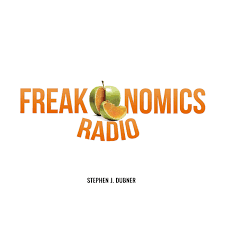According to The Knot Jewelry and Engagement study, 22 percent of couples who meet online and end up getting engaged. Tinder, the dating app behemoth, is responsible for matching 30 percent of all engaged couples who met online, with OkCupid and Bumble rounding out the top three websites.
Conducted by the Marriage Foundation, a new study surveyed 2,000 married adults and found that couples who meet through smartphone dating apps are actually more likely to stay together.
It's a perfect topic for a podcast with analyzes causality and the connective tissue of societal trends.
In the new episode of Freakonomics Radio, the hit podcast explores marriage markets - from historical examples seen in shows like Bridgerton to the modern version of dating apps from Tinder to Raya.
Freakonomics Host Stephen Dubner talks to anthropologists and economists in this latest episode about how marriage markets have evolved over time - and how they haven't. As one researcher describes current dating apps, "today we have several matching technologies that in some way resemble this old marriage market of the aristocracy."
The concept at play in both is called "assortative mating." Broadly, this is the idea that most people end up marrying someone who’s quite like them in some significant way. But it’s tricky to nail down the causality, to tell whether that’s a true preference or just a function of circumstance. "What we observe is the final outcome," one economist explains. "We observe who marries whom. But it’s hard to disentangle what reflects the choices and what reflects the marriage-market aspect of who we met."
Listen to the episode at freakonomics.com or on any podcast platform.
Finally, it's better to meet up sooner rather than later when connecting via a dating app, says dating expert for Match Hayley Quinn. One to two weeks is the optimum about of time, according to Quinn, as it gives you time to get to know them, but not too much time that you overthink or the spark fizzles.
Please don't swipe left on this article or this Freakonomics episode.

Comments
Post a Comment
Thank You for your input and feedback. If you requested a response, we will do so as soon as possible.